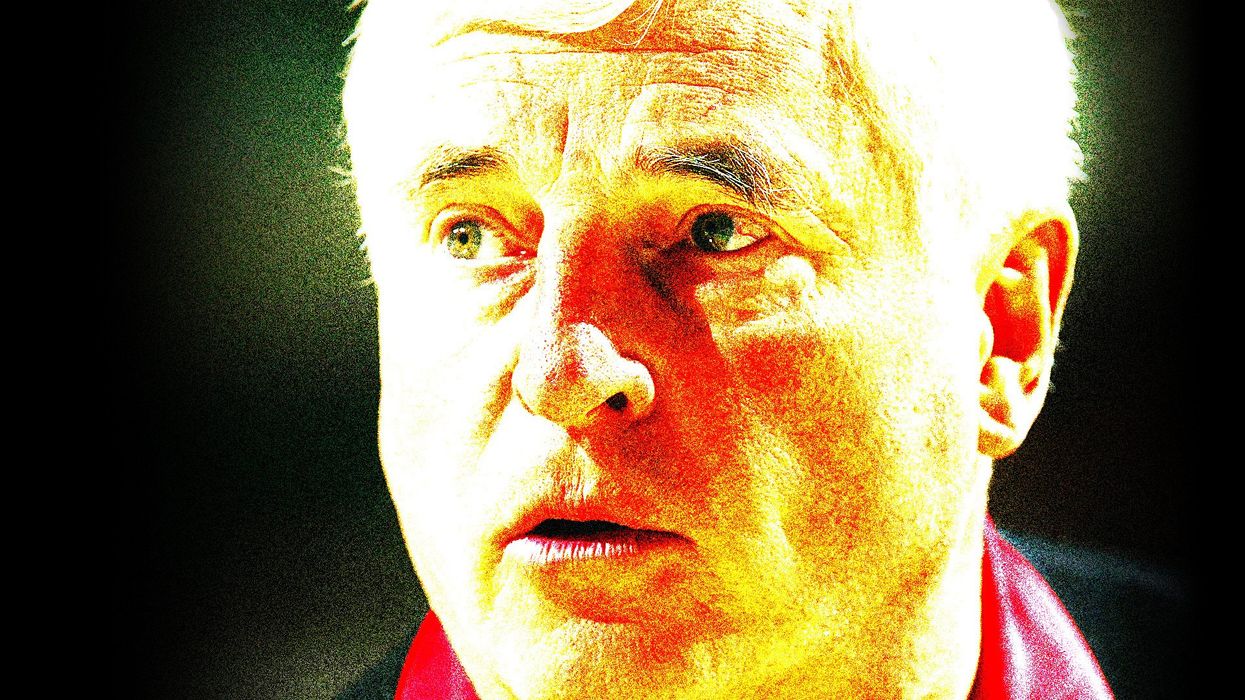
Brian Bahr / Staff | Getty Images

Today, liberals have to pretend that guys like Knight should be eliminated from all positions of leadership to protect the mental health of young people.
One year after Indiana University hired Bobby Knight, the Washington Post and CIA forever changed the American media in ways that would impact Knight’s legendary coaching career.
In June 1972, the Post published its first story about the Watergate break-in. In the spring of 1973, Carl Bernstein and Bob Woodward won the Pulitzer Prize for the investigative work CIA informants handed them about President Richard Nixon’s alleged cover-up of the burglary. Nixon resigned on August 9, 1974.
American journalism has never been the same. The success of the Watergate story put a target on the head of every high-profile leader in America. Newspapers and television networks rewarded reporters for hunting scalps and leading investigations that led to firings. Media outlets promoted pundits willing to take down polarizing leaders.
Unbeknownst to then-30-year-old Bobby Knight, the Watergate investigation would put him in the crosshairs as his authoritarian, militaristic coaching style made him America’s best college coach.
Much of the media hated Knight, who died Wednesday at the age of 83. I did not love or hate Coach Knight. As a kid growing up in Indiana, I marveled at him. I marveled at the players brave enough to endure his boot-camp approach to basketball.
I judged Knight by his fruit. He won. He won bigly. He produced the perfect basketball team in 1976, the last major college team to finish the season undefeated. Five years later, he partnered with a kid from a Chicago ghetto (Isiah Thomas) and won a second national championship. And six years after that, Knight rode the shooting of a kid (Steve Alford) from an Indiana small town to a third title.
Knight dominated college basketball while producing young men of high character. Knight produced enough great fruit that I was willing to ignore or at least tolerate his bully tactics. He struck me as no different from my high school and college offensive line coaches.
When I graduated college and entered the media, my first job was at the Bloomington Herald-Times. My first boss was Bob Hammel, Knight’s best friend and the sports editor of the local newspaper.
I don’t have any profound memories or stories of my limited interaction with Coach Knight. I asked him occasional questions at press conferences, especially during the two years I worked in Ann Arbor, Michigan, and covered Indiana’s games against the Fab Five.
What I remember about Bobby Knight is his unique friendship with Hammel. They were complete opposites. Hammel was a frumpy, soft-spoken, kind-hearted, liberal sports writer. He’s short. I can’t imagine he ever played sports in high school. I don’t ever remember hearing Hammel curse or say a harsh word to anyone. He’s the last guy you’d ever imagine would be best friends with the General Patton of sports. Knight was a hyper-conservative ex-jock with a volatile temper and a mean streak.
Over the years, Hammel took a lot of flak for being Knight’s friend and primary defender. Like me, Hammel had no interest in tearing down Bobby Knight. Hammel could see the fruit Knight produced: the players who seemingly always graduated and rarely got into serious trouble. The players who swore that Knight’s tactics molded them into better men. The millions of dollars Knight raised for the Indiana University library.
Bobby Knight was far from perfect. But he was not difficult to defend, especially not in the 1980s and 1990s, a time when political differences did not require separation.
That’s what I remember about Coach Knight and Bob Hammel. When I learned of Knight’s passing, I reflected on the unique friendship he shared with the boss who gave me my start in sports journalism.
What a glorious time it was. Hammel recognized my conservative values long before I knew what a conservative was. It did not stop him (and others) from assisting in my development as a journalist.
What I learned from Hammel was the value in explaining things rather than demanding things. A long time ago, journalism was about explaining, not demonizing. Hammel chose to explain Bobby Knight during an era when many people in the sports media wanted to demonize Coach Knight and treat him as the coaching version of Richard Nixon.
It’s funny. I’m sure people reading this believe I’m nothing like my former mentor. They read what I say about Deion Sanders and conclude I’m nothing like Hammel. Sports fans in Kansas City probably remember my columns criticizing King Carl Peterson, the Chiefs' old general manager, and think the same thing.
I’m not Bob Hammel. But I love him. I still honor and respect him. I miss the days when political differences did not end friendships and relationships. I miss the days before the intelligence agencies weaponized the media to destroy masculine leadership.
Hammel, a hard-core liberal, could see the value in leaders like Bobby Knight. Today, liberals have to pretend that guys like Knight should be eliminated from all positions of leadership to protect the mental health of young people.
Today, the American media has been rigged to destroy the producers of masculine men.
Rest in peace, Coach Knight.Jason Whitlock
BlazeTV Host